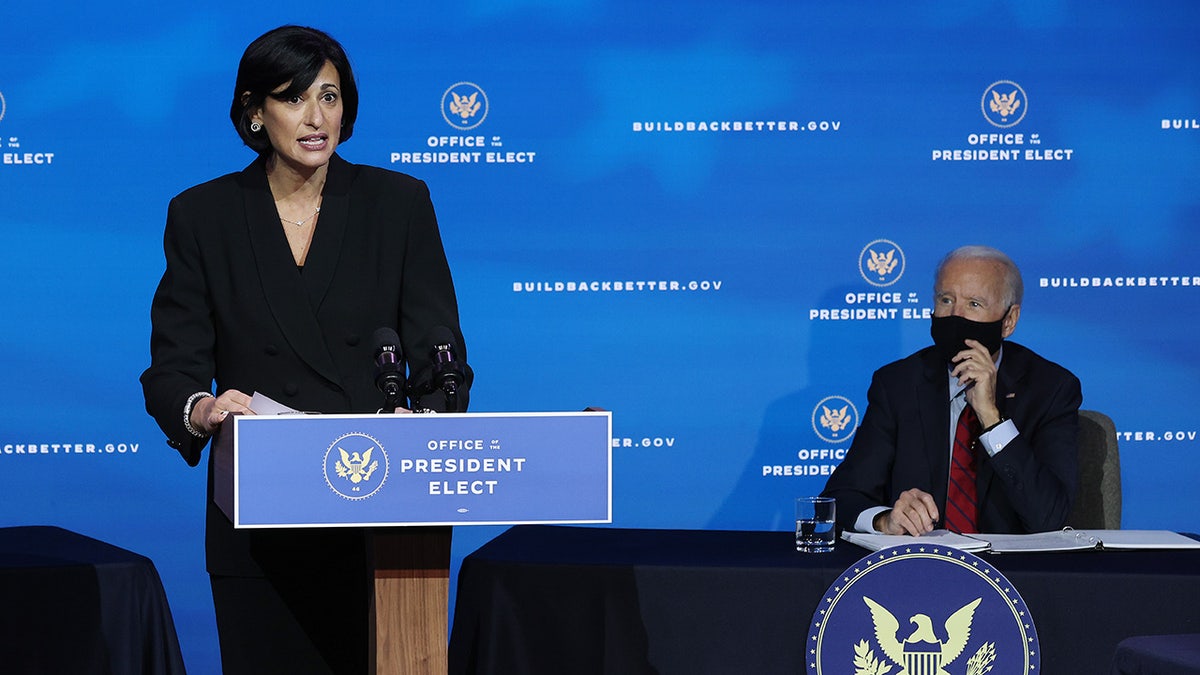CDC director predicts COVID-19 vaccine distribution will increase dramatically by late March
CDC Director Dr. Rochelle Walensky details the status of coronavirus vaccine production and distribution on 'Fox News Sunday'
The new head of the Center for Disease Control (CDC) said Sunday that the U.S. has to "go faster" than the Biden administration's current goal of 100 million coronavirus vaccinations in 100 days.
Dr. Rochelle Walensky acknowledged that the administration faces certain constraints in its "race" against the virus.
"The first is the supply, and we’re working closely with manufacturers so that does not become a constraint," Walensky told "Fox News Sunday" host Chris Wallace. "We also need to sort of make sure that this, the supply, gets to pharmacies, that we have enough vaccinators, that we have enough places and outreach to do the vaccination."

Dr. Rochelle Walensky, President-elect Joe Biden’s pick to head the Centers for Disease Control, speaks during a news conference at the Queen Theater December 08, 2020 in Wilmington, Delaware. (Photo by Chip Somodevilla/Getty Images)
Walensky stressed that the picture is optimistic, with the Johnson & Johnson vaccine set to be approved in the weeks ahead, and that a fourth vaccine could be approved shortly after that.
Biden's nominee for Surgeon General, Dr. Vivek Murthy, echoed the sentiment that the administration's vaccination goal is on the low side.
"That’s a floor, that’s not a ceiling," Murthy told "This Week" host George Stephanopoulos on ABC. "We've got to increase supply, which we can do using the Defense Production Act, but we have to set up distribution channels like mobile units that can reach people."
CDC SAYS COVID-19 VACCINE DOSES CAN BE GIVEN 6 WEEKS APART, WARNS JABS ARE NOT INTERCHANGEABLE
The need for vaccinations has increased as new variant strains of COVID-19 have appeared across the world: the U.K. strain of the virus has proven to be more contagious and possibly more virulent.
The U.K. strain has appeared in almost two dozen states in the U.S. So far, no other strains have appeared, but some believe that it is only a matter of time.
CLICK HERE TO GET THE FOX NEWS APP
When asked if the administration feels pressure to vaccinate more people as new strains appear in the U.S., Walensky said that the pressure has not changed.
"I would say we’ve been a race all along," Walensky said. "The more virus that is out there, the more virus that is replicating, the more likely that we are going to have mutations and variants."





